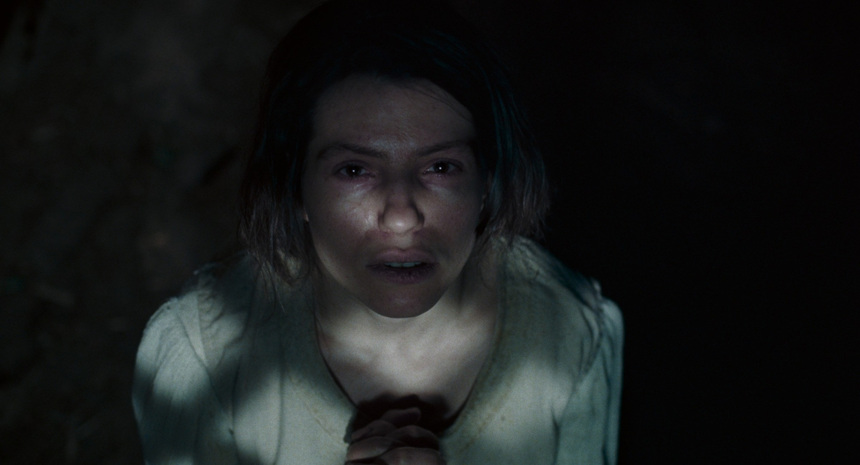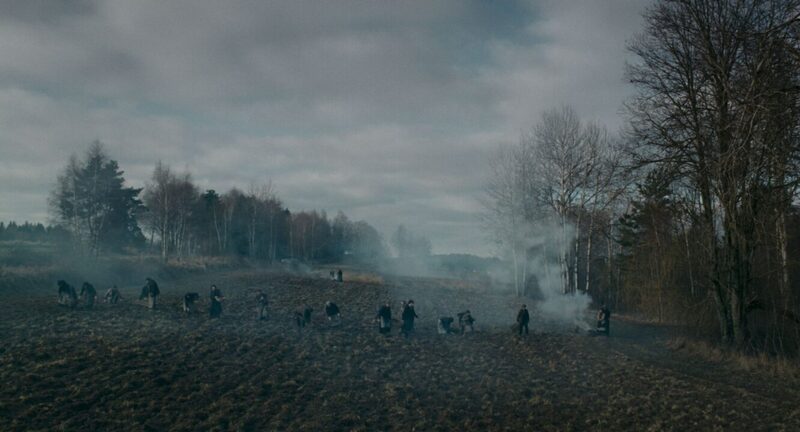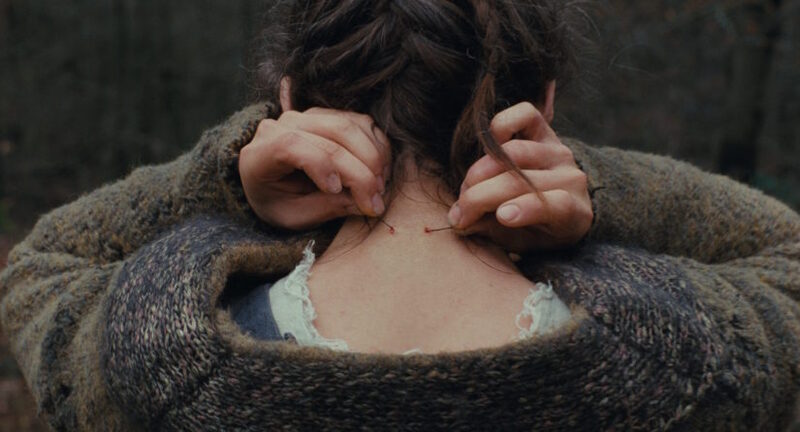Berlinale 2024 Review: THE DEVIL'S BATH, Gripping Period Drama on the Cusp of Reality and Despair
Veronika Franz and Severin Fiala embark on a haunting exploration of 18th-century womanhood, set against the backdrop of societal and religious confines.

The acclaimed directing duo behind Goodnight Mommy and The Lodge, Veronika Franz and Severin Fiala, make a notable return with their latest film, The Devil's Bath.
Set in Upper Austria in 1750, this period drama marks a nuanced departure from their earlier works, delving into the human condition with a focus on women's lives amid the burdens of societal expectations and religious orthodoxy.
The film opens with a wedding in a village, introducing Anja Plaschg's character, Agnes, alongside her soon-to-be husband, Wolf (David Scheid). Following the ceremony, Agnes is whisked away to her new home, leaving behind her mother and brother to live with Wolf.
In her new life, she confronts the expectations Wolf holds for her role in the household and the family's lake, while Wolf's mother — portrayed by Ulrich Seidl's regular, Maria Hofstätter — imposes even greater demands. These expectations are deeply rooted in the period's stereotypes and her own life experiences, outlining a rigid perspective on a woman's duties and capabilities.
Life as a newlywed falls short of Agnes's expectations, particularly as her devout religiosity drives her to eagerly assume her maternal responsibilities. However, this aspiration quickly becomes a source of tension; Wolf, exhausted from his day's work at the lake, shows little interest in conjugal relations.
Further complicating their domestic life is the omnipresent interference of Wolf's mother, who dictates the household's operations with an iron fist. This creates a palpable sense of antagonism, pushing Agnes to seek solace outside the home. Her increased absences draw the ire of her mother-in-law, who dismissively brands her as lazy.
Franz and Fiala meticulously trace Agnes's journey with a close and intimate lens, capturing how the unfolding events, combined with her deep religiosity and sensitivity, begin to exert an emotional toll on her. Initially buoyant spirits spiral into grim moods, culminating in a burdensome melancholia.
At this juncture, The Devil’s Bath transforms into a full-blown psychological drama, charting Agnes’s gradual descent into a profound depression. The writer-director team grounds their narrative in historical authenticity, drawing from court records to shed light on a chapter of European history that remains largely unexamined. The film is periodically precise and medievally macabre.
The Austrian auteur duo, known for their metaphysical style that characterized Goodnight Mommy and The Lodge, apply this approach as Agnes becomes increasingly detached from external reality. The protagonist's melancholic dream state blurs with the outer world, challenging the audience to discern between reality and Agnes’s scarred emotional state as she teeters on the brink of psychosis.
Her descent into a nervous breakdown is depicted with surgical precision, yet what stands out is the stark realism that Franz and Fiala maintain. Unlike The Lodge, where supernatural elements and misleading devices were employed, The Devil’s Bath relies on straightforward storytelling that is, paradoxically, deeply immersive.
The Devil's Bath lies at the crossroads of its protagonist's inner and outer lives, navigating the delicate balance between historical fact and emotional truth, life and death, stability and derangement. The film's implicit, yet ever-present pressure, transcends the confines of genre and period, rendering it a compelling viewing experience regardless of whether it is approached as a psychological horror, aligning with the contemporary trend of religious horror, or as a period psychological drama exploring the roles and recognition of women throughout history.
The film's intensity is significantly enhanced by the cinematography of Martin Gschlacht (Club Zero), who artfully combines the claustrophobic ambiance of subterranean catacombs with the disorienting meanderings through a forest as vivid visual metaphors for Agnes’s inner turmoil. While such scenes could easily find a place in a more conventional horror film, Gschlacht's concentrated focus on the protagonist, coupled with the meticulous work of the art department led by Andreas Donhauser and Renate Martin, brings a depth to the film as a genre film and as a drama.
Their commitment to historical accuracy and the authenticity of 18th-century daily life elevates the portrayal of a woman’s struggle within the confines of her era and her own psyche. Gschlacht's outstanding contribution to the film was recognized with the Silver Bear for Outstanding Artistic Contribution, underscoring the critical acclaim for his work in enhancing the narrative's immersive experience.
Furthermore, The Devil's Bath holds a particular relevance to contemporary discussions on gender and social politics, delving into a medieval phenomenon that significantly impacted women under the stringent regulations of both Catholic and Protestant doctrines governing their lives. For an enhanced viewing experience, viewers are encouraged not to delve into the historical context beforehand but to allow the filmmakers' storytelling to guide their understanding.
Any necessary clarifications and insights into the broader historical implications are thoughtfully provided in the film's epilogue, ensuring audiences leave with a comprehensive grasp of the narrative's significance and its connections to broader historical and social themes.
Shudder acquired North American rights for a release in Summer 2024, while also procuring rights for the U.K., Ireland, Australia and New Zealand, with all release dates to be announced later.
THE DEVIL’S BATH a film by Veronika Franz and Severin Fiala - International Trailer from Playtime on Vimeo.
The Devil's Bath
Director(s)
- Severin Fiala
- Veronika Franz
Writer(s)
- Severin Fiala
- Veronika Franz
Cast
- Anja Plaschg
- Maria Hofstätter
- David Scheid









